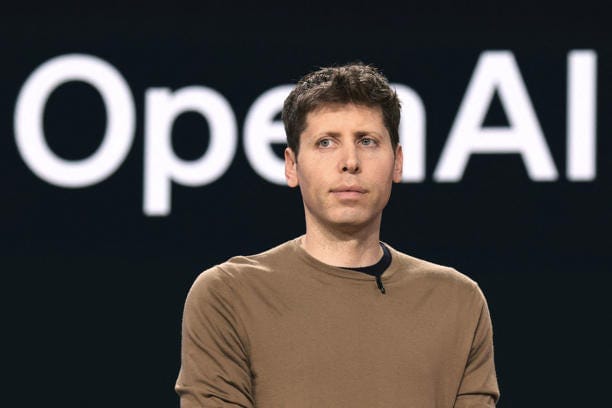OpenAI's Stargate Project: Transforming U.S. AI Infrastructure with Data Center Campuses in 16 States

The US is all set to witness some drastic changes in AI infrastructure as envisioned by OpenAI's aggressive Stargate project. OpenAI, in partnership with Oracle and SoftBank, seeks to create AI-specialized data center campuses across the country. As part of this investment tagged at $100 billion, which could be up to $500 billion over the next four years, 16 states have reportedly shown interest in hosting these large facilities. This article explores the importance of the project, its economic impact, and the geopolitical imperative that is driving AI development in the U.S.
The Vision Behind Stargate
Just a few weeks after his inauguration, President Donald Trump announced the Stargate initiative, emphasizing the need to strengthen America's AI infrastructure. Given the rapid strides in AI technology, especially in China, Stargate is an effort to maintain the U.S.'s competitive edge in this critical sector.
Chris Lehane, the Vice President of Global Policy for OpenAI, was keen on noting that this project can rejuvenate America's industrial landscape. "A project of this scale gives the opportunity to re-industrialize parts of the country and help revive where the American Dream is going to go in this intelligence age," Lehane said.
Expansion Data Center: 16 States Up for Consideration
OpenAI is looking into 16 states for a possible data center location:
Arizona
California
Florida
Louisiana
Maryland
Nevada
New York
Ohio
Oregon
Pennsylvania
Utah
Texas
Virginia
Washington
Wisconsin
West Virginia
Construction has begun in Abilene, Texas, and additional locations will be announced over time during the remainder of this year. Each campus is sized to support a minimum of one gigawatt or more of power, with five to ten campuses planned overall, although the exact number may vary depending on site-specific power capacities.
Economic and Employment Impact
The Stargate project is supposed to create thousands of jobs all over the country. These include construction and operation jobs, therefore contributing to the local economies. However, according to early reports, the facility in Abilene, Texas, will have only 57 permanent jobs. This has brought into question whether AI-driven infrastructure projects are worthwhile for long-term employment.
Environmental Considerations
Large-scale data centers are infamous for the amount of energy and water that they consume. Energy.gov suggests that data centers require up to 50 times as much energy per square foot as the average commercial office building. They constitute about 2% of the total U.S. electricity consumption. Google, for instance, reported in 2022 that its average data center consumed some 450,000 gallons of water per day for server cooling.
To address these environmental concerns, OpenAI is exploring partnerships with utilities to develop alternative power-generation methods and light water-footprint designs. While specifics about water usage remain undisclosed, OpenAI executives have assured that sustainability is a key consideration in their plans.
The Global AI Race: A Geopolitical Imperative
In part, the U.S. is motivated to push on its AI infrastructure due to China's ever-accelerating forerunner advancements in AI. Recently, one of China's AI start-ups, DeepSeek, captured headlines by launching a very powerful AI model at a portion of the cost of its competitors in the United States. OpenAI CEO Sam Altman publicly complimented DeepSeek's model as "clearly a great model," recognizing the competitive surge.
Chris Lehane said, "Right now, there are really only two countries in the world that can build this AI at scale: China, led by the CCP, and the United States. The competition is very real, and the stakes could not be bigger."
As AI continues to shape industries and economies around the world, the country that dominates in AI research and infrastructure will have an outsized influence on the future technological landscape. Stargate is America's attempt to retain its AI leadership and counter China's rising capabilities.

The Road Ahead
Since OpenAI is currently receiving proposals from willing states, there are next actions to settle site locations, provide infrastructure agreements, and tackle concerns on environmental considerations. Given that AI progress comes with time, and competition emanates from major international powers, the US administration and the private sector should see eye to eye in implementing actions that make sure Stargate meets the more ambitious set expectations.
FAQ
What is OpenAI Stargate?
Stargate is an initiative to be executed with a joint collaboration between OpenAI, Oracle, and SoftBank to build data center campuses for AI-intensive use across the U.S. The project will invest up to $500 billion over the next four years to strengthen AI infrastructure.
Which states have the potential to see the data centers?
OpenAI is assessing 16 states: Arizona, California, Florida, Louisiana, Maryland, Nevada, New York, Ohio, Oregon, Pennsylvania, Utah, Texas, Virginia, Washington, Wisconsin, and West Virginia.
How many jobs will the Stargate project generate?
While the project is expected to generate thousands of jobs in construction and operations, the first data center in Abilene, Texas, is projected to create only 57 permanent jobs. The employment impact may vary with different locations.
What environmental concerns would these data centers have?
Data centers are extremely power-hungry and thirsty. OpenAI is committed to sustainable solutions; it is discussing partnerships with utility companies and developing light water-footprint designs for its data center to minimize its environmental impact.
Why is there a need to establish AI infrastructure in the U.S.?
The rapid technological growth in China with DeepSeek, for example, has forced competition from global countries. Stargate means that OpenAI and its counterparts consider this crucial step toward helping the U.S. retain supremacy in AI technologies.
OpenAI Stargate will represent a big leap for U.S. landscapes, focusing on deindustrializing parts of the country by competing globally. With 16 states in the running and billions of dollars in investment, the project has the potential to influence the future of AI infrastructure, but employment impact, environmental sustainability, and geopolitical tensions will play a critical role in its success. As such, the eventual development is to be watched as a defining moment in the AI era.

